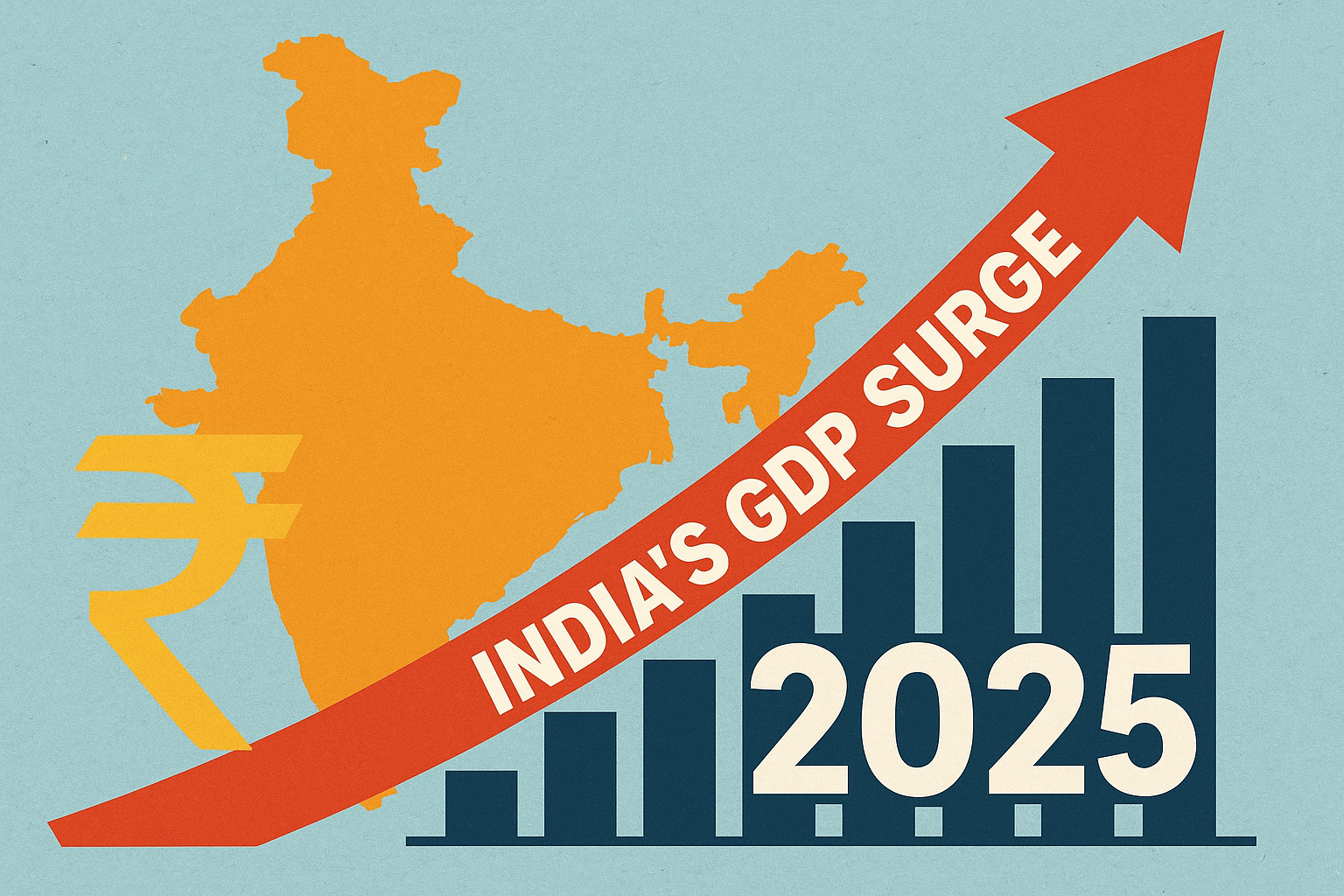Have you ever dreamed of finding the “perfect” investment that would make you wealthy overnight, winning the lottery, or landing your ideal job? We’ve all been there: searching for a quick fix to make a lot of money. But what if I told you that flashy tricks and quick wins aren’t the secrets to building lasting wealth?
Instead, it’s something quieter. Slower. Almost invisible.
It works in the background, day after day and that’s exactly what The Compound Effect is all about. It’s a powerful philosophy that shows how the small choices you make every single day quietly shape your entire financial future. Inspired by Darren Hardy’s bestselling book, this blog breaks down the compound effect summary in simple, actionable language, packed with relatable examples and real-life money tips.
If you’ve ever wondered how some people quietly build wealth over time while others struggle to stay afloat despite earning well, this is your wake-up call.
Let’s Be Honest—Most of Us Want Wealth Without the Hustle
In a world obsessed with shortcuts—viral side hustles, instant crypto gains, and “get rich quick” reels—we’ve grown impatient. We want financial freedom, but we don’t want the slow grind it takes to get there.
Darren Hardy, in his book The Compound Effect (get your copy here), calls this out bluntly: Most people want the rewards without the repetitions.
Let’s say you want to save ₹10 lakhs. Forget waiting around for that massive salary bump or praying for a lucky break. Imagine this instead—you put aside just ₹8,350 every single month for a year.
Not exactly exciting dinner party talk, right? The thing is, it’s doable and it’s exactly how real wealth is made. In reality, hitting one big win usually doesn’t lead to lasting financial success. It is the outcome of repeatedly making small, clever moves that eventually grow into something big.
That’s the magic behind The Compound Effect. In simple terms:
Small, Smart Choices × Consistency × Time = Massive Results.
No tricks. No hype. Just simple math, quietly working its magic in the background while you go about your life.
Let’s explore how it works.
Imagine putting ₹10,000 aside every month and earning about 12% returns each year. How much do you think that could grow over time?
- In 10 years, you’ll have around ₹23.3 lakhs.
- In 20 years: ₹1 crore (₹99.6 lakhs)
- In 30 years: over ₹3.53 crores
Same monthly amount. Different timeframes. That’s how the compound effect works in everyday life.
A story from the book makes this even clearer. You’re given two options:
- Take ₹1 lakh right now
- Or think about ₹1 that doubles every day for 31 days.
Most would choose ₹1 lakh. But if you pick the second option, you’d end up with ₹10+ crores on Day 31.
That’s the power of compounding—slow and steady at the start, but it grows explosively over time. (Want more real-life examples like this? Grab the book here).
How This Applies to Your Money—Whether You’re a Rookie or a Pro
Let’s put theory into action. Whether you’re just starting your financial journey or already investing actively, the compound effect can work wonders.
For beginners:
- Skip that ₹100 coffee every day and invest it instead. You’d save over ₹36,000 a year.
- Start a SIP with just ₹500/month. More important than how much you invest is the habit of being consistent.
For seasoned investors:
- Set up automatic quarterly portfolio reviews—it’s a simple way to stay on track without turning investing into a full-time job.
- When dividends come in, don’t cash them out. Let your wealth continue to grow by reinvesting it.
- Even if the market drops, continue investing. The greatest long-term gains frequently come from those uncertain times.
For financial advisors or coaches:
- Help your clients focus on developing lasting habits instead of getting caught up in the short wins.
- Focus on behavioral change. That’s where the most significant transformation truly happens.
This is where key lessons from The Compound Effect become practical:
You don’t need more money— you just need to get better at managing what you already have.
One Small Habit Can Change Everything (True Story)
In The Compound Effect, Darren Hardy tells a simple but powerful story about three friends—Brad, Scott, and Larry. In this pretty, eye-opening story, he explains how their small daily decisions lead them down entirely different paths.
At first, nothing dramatic happens. But give it a little time, and the results are night and day. Here’s a deeper dive into a popular story from many compound effect book review articles—the tale of three friends that shows how invisible choices lead to visible outcomes.
- Larry makes no changes to his life.
- Scott begins by cutting just 125 calories a day, spends 10 minutes reading each day, and listens to self-development audios regularly.
- Brad starts indulging—an extra beer here, late-night snacks, skips workouts.
At first, nothing seems different. But after 2 years:
- Scott is fit, energized, and moving ahead in life.
- Larry life stays the same.
- Brad gains weight, feels sluggish, and faces setbacks.
The changes were small. But as time went on, the difference between them grew bigger and bigger—dramatically so.
And it’s not just about health—the same idea works for your money too.
Real Talk: Why Most People Fail at This
Let’s be brutally honest—if the compound effect summary is so powerful, why isn’t everyone rich?
Because it’s boring.
- Investing ₹100 daily won’t make headlines.
- Tracking expenses feels tedious.
- Skipping online shopping doesn’t give instant satisfaction.
But guess what? The boring stuff works.
The problem is that negative habits also compound.
- Swiping your credit card for things you don’t need
- Ignoring monthly investments
- Avoiding financial planning
These small missteps pile up. And suddenly, you’re buried in debt or far behind your wealth goals.
As Hardy puts it:
“The Compound Effect is always working—either for you or against you.”
If you’re tired of random advice and want a proven system, start with the book itself. Here’s the link again.
5 Tiny Money Habits You Can Start Today
Want to build wealth using the compound effect? Start here.
1. Automate Your Savings
Set up an auto-transfer of ₹100–₹500/day to a separate savings or investment account. Start small. It adds up fast.
2. Track Expenses for 30 Days
Awareness is powerful. Use an app or Google Sheets. You’ll be shocked by what you discover.
3. Consume One Financial Tip Daily
Follow a finance blog, listen to a money podcast, or read one page from a book. 365 tips a year = a better you.
4. Invest Before You Spend
The moment you get paid, invest a fixed portion. Spending what’s left ensures you don’t waste the surplus.
5. Set Weekly Wealth Check-ins
Every Sunday, spend 10 minutes reviewing your money. Check expenses, update your budget, tweak your SIPs. This keeps you in control.
Final Thoughts
The Compound Effect focuses on something much more dependable: patience, steady consistency, and financial discipline. That is the formula that, over time, leads to true success in a quiet but steady manner. You only need compounding success, not overnight success. It doesn’t matter whether you’re investing ₹500 or ₹50,000 – the key is that your habits line up with your goals.
Stick with it, and those steady steps will grow into something much bigger before you know it.
- Make in India 2.0: How Manufacturing Is Reshaping Market Sentiment - December 13, 2025
- Real Estate Boom : Why Tier-2 Cities Are Attracting Big Investors - December 12, 2025
- India’s GDP Surge 2025: What the New Growth Numbers Mean for Markets - December 9, 2025





